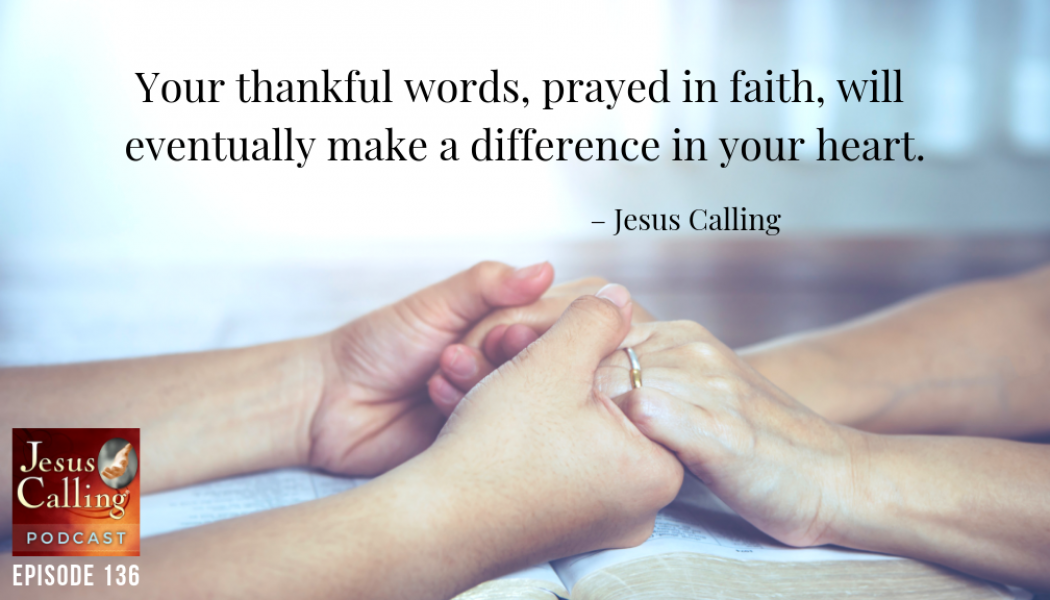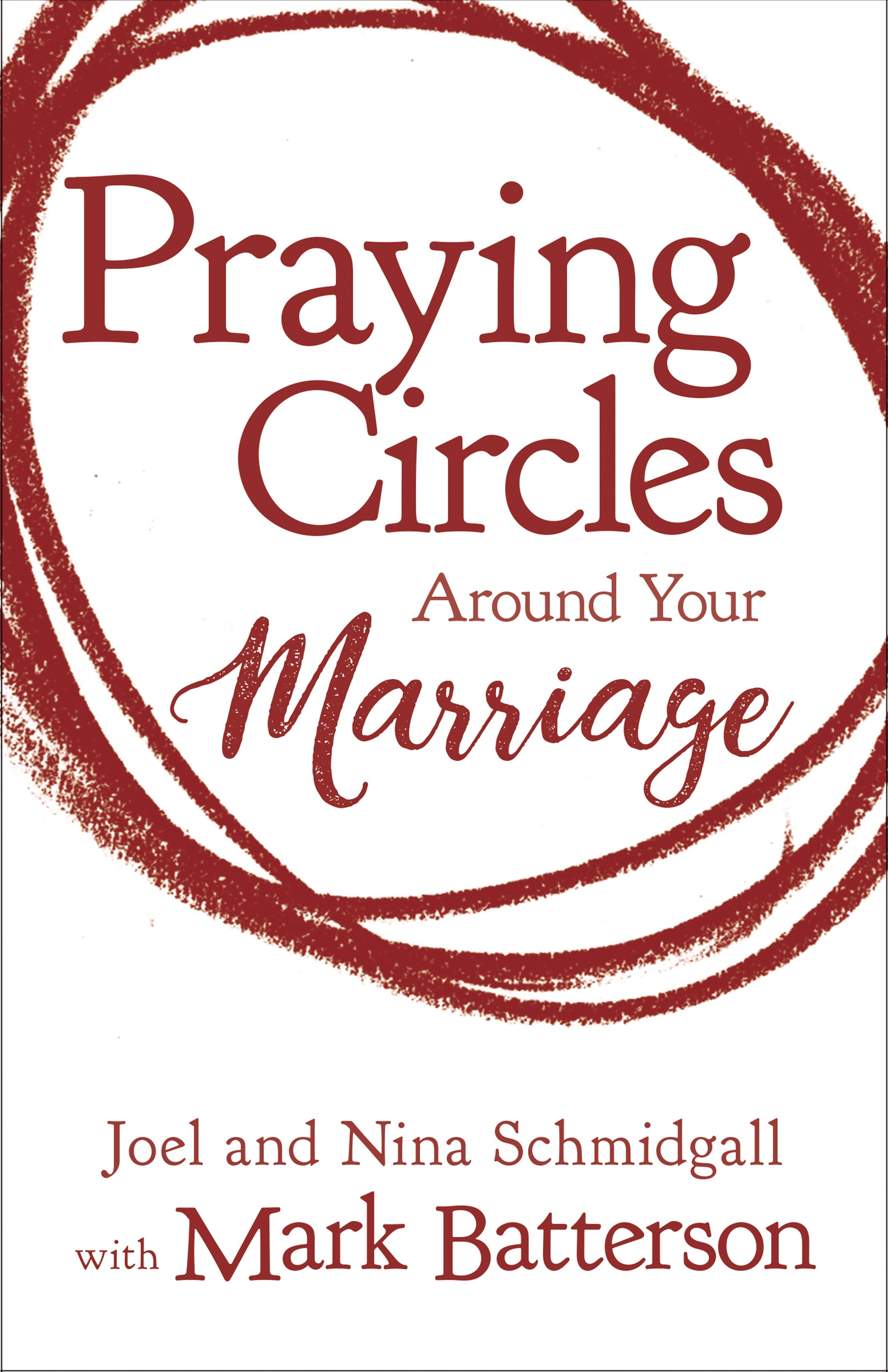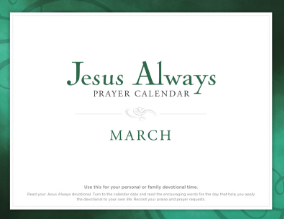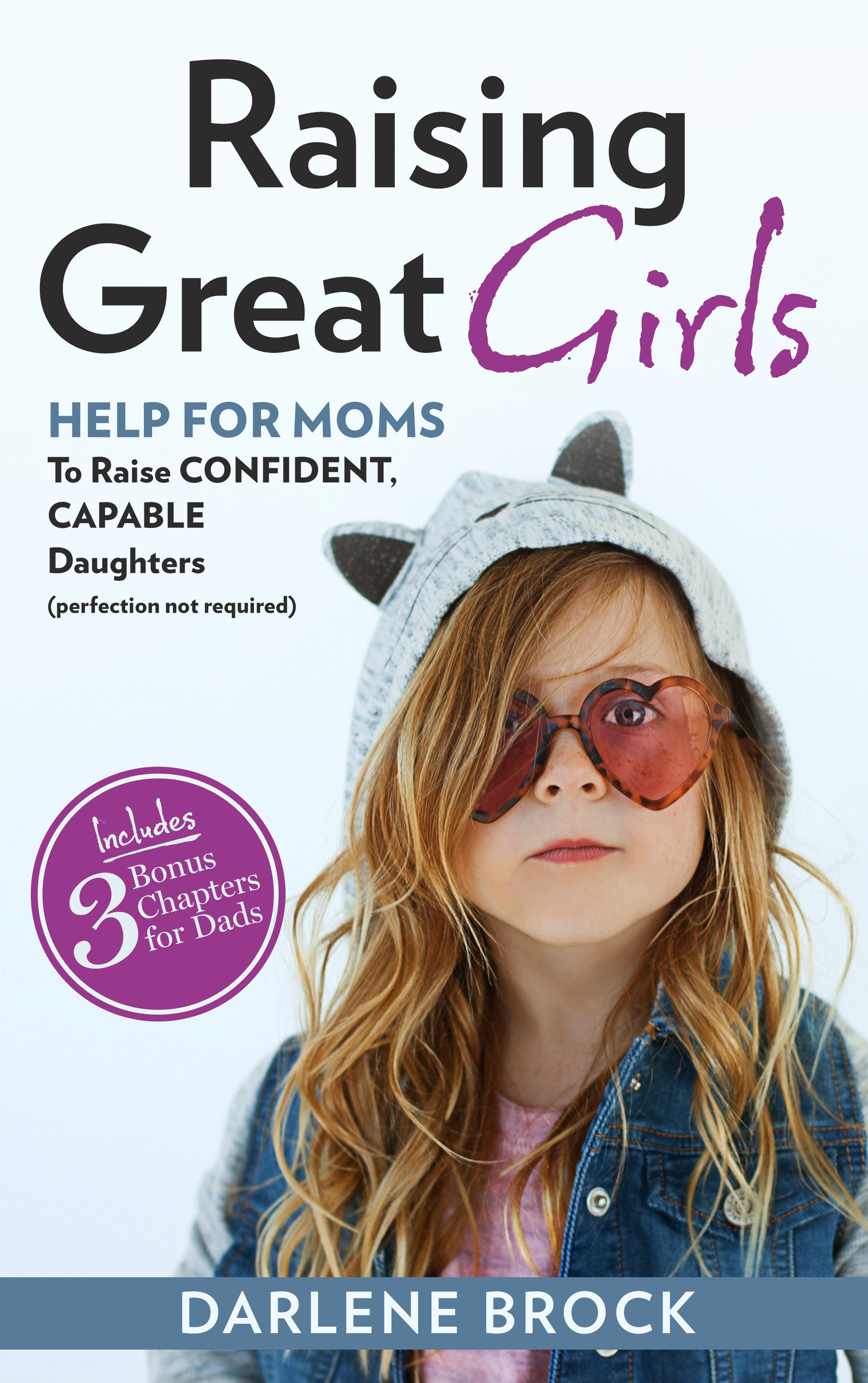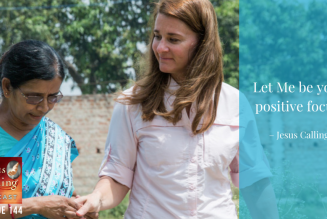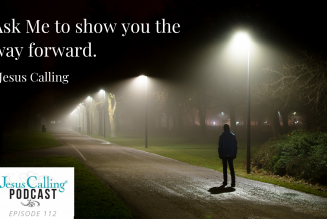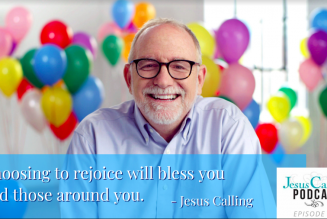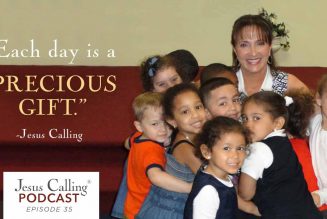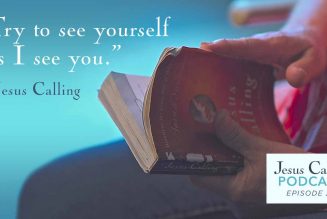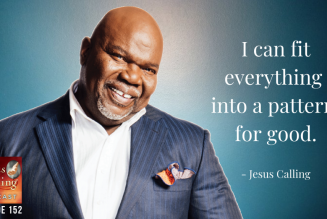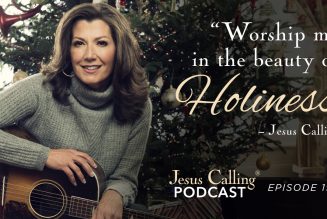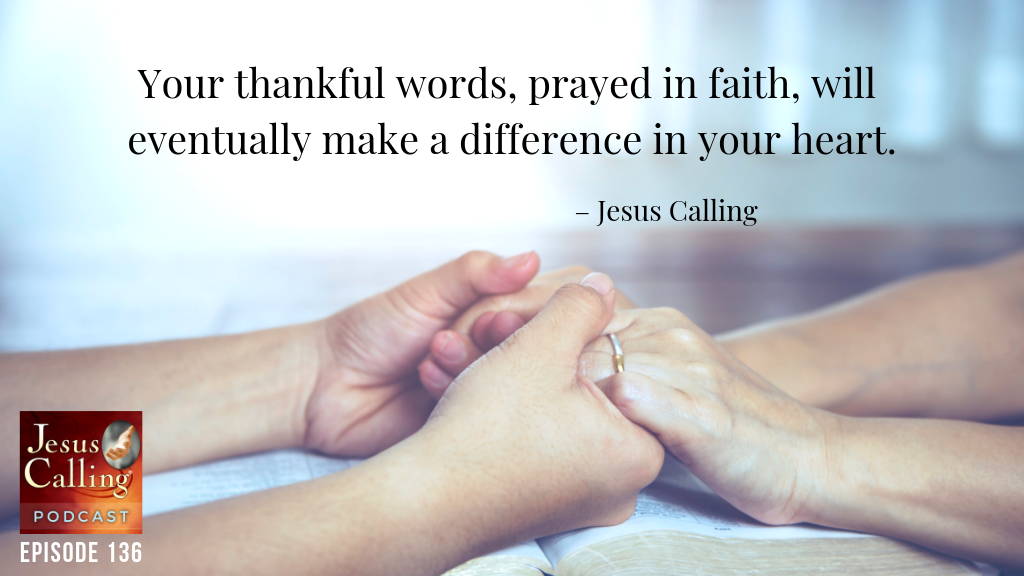
Pastors Joel and Nina Schmidgall and writer Darlene Brock are finding balance in their lives by they committing their closest relationships to prayer and giving their worries and expectations to God. Up first, Joel and Nina Schmidgall live in Washington, D.C. and minister to couples at National Community Church. Over the years, they have learned how to include God’s love and guidance in their marriage by praying to Him. Joel and Nina have collaborated with their friends, Mark and Laura Batterson, and put their discoveries into a new book called Praying Circles Around Your Marriage. After spending 20 years in the Christian music business, Darlene Brock felt God leading her in a new direction: beginning a ministry to help women join together and support each other to become the best version of themselves. Today, she explains why this support and community is so needed by women as they face unique challenges in our current society.
Nina: We believe that there is a need for a prayer revival in marriages today. There are many couples that are just hurting. They’re walking into disappointment in their marriage. They’re desperate for hope. Marriage is the most sacred relationship on this earth, and we really believe that prayer is the single most powerful way to transform it.
Transforming Relationships Through Prayer: Joel & Nina Schmidgall & Darlene Brock – Episode #136
Narrator: Welcome to the Jesus Calling Podcast. Today’s guest are finding balance in their lives by they committing their closest relationships to prayer and giving their worries and expectations to God: pastors Joel and Nina Schmidgall and writer and podcaster Darlene Brock.
Up first, Joel and Nina Schmidgall live in Washington, D.C. and minister to couples at National Community Church. Over the years, they have learned how to include God’s love and guidance in their marriage by praying to Him. Joel and Nina have collaborated with their friends, Mark and Laura Batterson, and put their discoveries into a new book called Praying Circles Around Your Marriage.
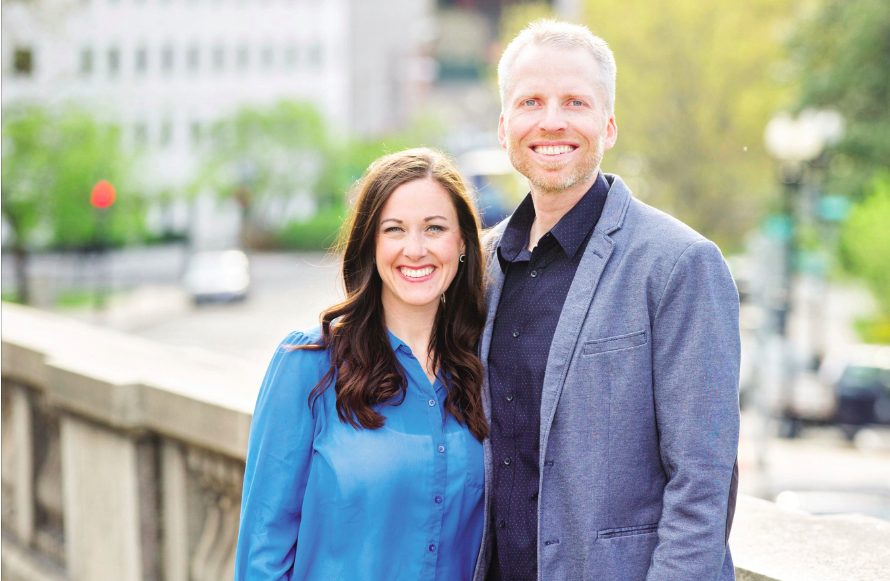 Joel: My name is Joel Schmidgall, and I’m executive pastor at National Community Church. We’re in Washington, D.C. I’m originally from Chicago—huge Cubs fan—and have three little kids, a dog, and a pet bee in our backyard. His name is Marty, and I think he’s the twenty-fifth generation of carpenter bees in our backyard. The kids believe him as our original pet.
Joel: My name is Joel Schmidgall, and I’m executive pastor at National Community Church. We’re in Washington, D.C. I’m originally from Chicago—huge Cubs fan—and have three little kids, a dog, and a pet bee in our backyard. His name is Marty, and I think he’s the twenty-fifth generation of carpenter bees in our backyard. The kids believe him as our original pet.
Nina: I’m Nina Schmidgall, and I am the director of Family Ministry at National Community Church. I grew up on the West Coast in California, but moved to D.C. a long while ago to work for Congress, and now get to spend my time in ministry.
Merging Two Backgrounds into One Marriage
When I first met Joel. he lived in a . . . he calls it, like, a “Christian fraternity.” It was a house of guys on Capitol Hill, really committed to intentional community. And one thing that they would do was have these dinners. It was a great way to get to connect and network and meet other people of faith around the city. I was invited to that dinner, and I met Joel there originally. And I think both of us probably agreed that we were pretty interested right away.
Joel: So we really hit it off, but it actually took a number of months before we started dating. It was about two and half years that we dated. And there [were] some highs and some lows in getting to know one another, and then we jumped in the marriage and we merged very different backgrounds. But there is beauty in diversity, and that’s what we’ve found, that God can use those differences and really bless you in unique ways through them, not in spite of them.
“There is beauty in diversity, and that’s what we’ve found, that God can use those differences and really bless you in unique ways through them, not in spite of them.” – Joel Schmidgall
Nina: Yeah, we came from really different backgrounds. Joel was a pastor’s kid who grew up in a home of intentional faith. And I had grown up in a home [that was] incredibly supportive and encouraging, but also had a broken marriage. And so there were just concerns about how we navigate that and figure out who we were and would carry into marriage, and we were pretty intentional on that front end.
Learning How to Conduct “Healthy War”
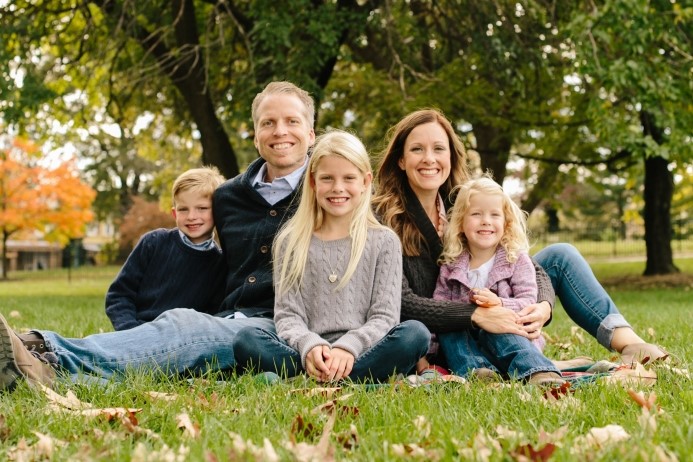 Joel: So I grew up in a really great home. Dad was a pastor, my parents are both in ministry and committed to that. And I love their marriage. Here’s the thing. They had a fantastic marriage that they modeled for us—so good that it seemed like they didn’t ever argue. They were really good at kind of protecting us from the tensions and the challenges and the arguments, and they would have those closed door, and it was a wonderful gift to us.
Joel: So I grew up in a really great home. Dad was a pastor, my parents are both in ministry and committed to that. And I love their marriage. Here’s the thing. They had a fantastic marriage that they modeled for us—so good that it seemed like they didn’t ever argue. They were really good at kind of protecting us from the tensions and the challenges and the arguments, and they would have those closed door, and it was a wonderful gift to us.
So then when I got into marriage, my expectation was everything should be perfect. We should never have conflict. We should never have tension. And so I’ve actually had to grow in that area: what is healthy conflict, or what we would call “war.” What does “healthy war” look like with an intimate relationship?
Nina: Early on in our marriage, we had some really incredible counsel that just talked to us about the importance of learning to fight fair. And I think that will likely be a marriage-long pursuit for the two of us, for sure.
I probably was more comfortable with conflict and had a lot more growth to do in being careful—and still do—about making sure that conflict remains healthy and is pushing towards growth and not division, to create safe places to dig into hard spaces provides an opportunity, I think, to address some issues before they become issues because the truth is anytime something becomes an issue, [addressing it] in the heat of the moment is usually not the most healthy approach.
“[Regarding conflict], create safe places to dig into hard spaces provides an opportunity.” – Nina Schmidgall
So we encourage things like a regular check in. For us, it was a Sunday night walk. But for others, maybe it’s just a date night or a routine checkpoint where couples can really lean in and know that there will be a safe kind of time where I can kind of address some of the things that have made even bothering concerning me, and maybe even working in a habit of some really intentional prompted questions. I think for Joel, knowing that was on the calendar, he was able to kind of be mentally prepared for more intentional conversation. And for me, those things were able to be addressed when they were in the heat of moment or frustration.
Reviving Marriages Through Praying Circles Around It
Narration: Joel and Nina describe how their years of working on their own marriage gave them insight and compassion for couples going through the same things in their church. With the encouragement of their pastor, Mark Batterson and his wife Laura, Joel and Nina decided to write a book focused on how prayer should be at the core of every healthy marriage.
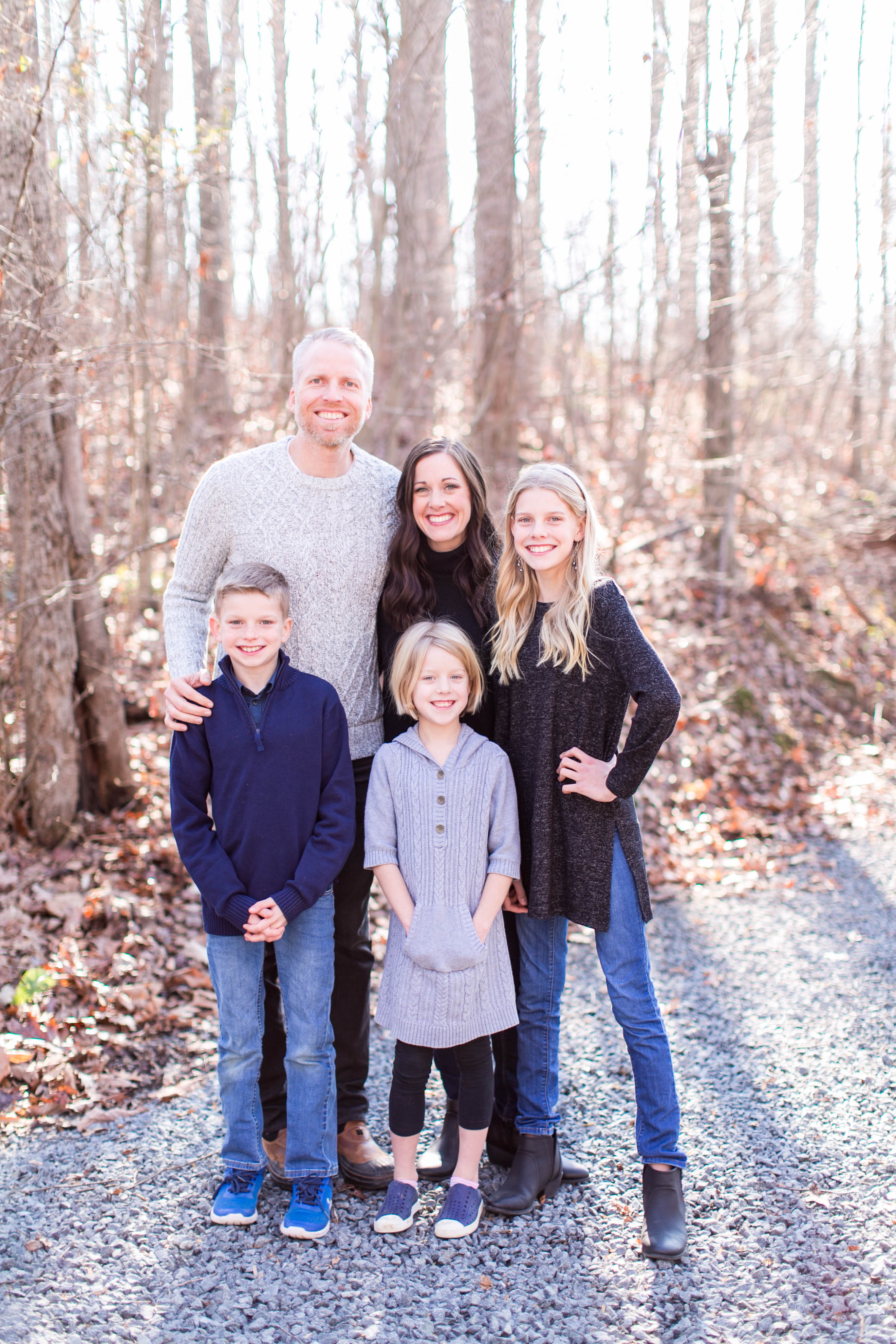 Nina: The past couple of years we have been praying that the Lord would give us more opportunity to work together, and the place where we have done that the most has been with couples and in marriages. And so really, when when Mark approached us [about writing a book], it was just a confirmation of something we’ve been praying about for a long time. [It was] a really exciting time.
Nina: The past couple of years we have been praying that the Lord would give us more opportunity to work together, and the place where we have done that the most has been with couples and in marriages. And so really, when when Mark approached us [about writing a book], it was just a confirmation of something we’ve been praying about for a long time. [It was] a really exciting time.
Joel: Praying Circles Around Your Marriage is 17 years in the making.
Pastor Mark actually came to us, and he pushed this book out of us. He drew [on what] we, Nina and I, had shared a message a sermon at National Community Church. He came to us a couple of weeks later said, “You guys, I’ll give you something to think about, to pray about.” And he pulled this book out [of us], and for us it was a huge affirmation because there are few people in life that know us more, know our marriage more than Mark and Laura. And when I say, that I mean they know the good and the bad. And so the fact that they said, “We really believe you guys have something to speak and to say on this,” was humbling, to be honest. And so we feel like now we’ve written this along with them because a lot of their wisdom and advice has been invested into our marriage.
This book was written in the margin moments. It was written in the conflict moments. It was written on the highs and the lows of collaborating in life. And so really, this book is the outcome of many years of friendship and marriage and investment and prayer.
It’s a book about marriage. But truthfully, it’s a book about prayer. And so it does really match up with Pastor Mark’s book The Circle Maker because it’s an outgrowth. It’s a book about prayer in the realm of the sacred relationship of marriage.
I love the quote that says, “You really only make a few decisions in life, and then you spend the rest of your life managing those decisions.” Marriage would be one of those few decisions. When you make that decision, you’ve just made a million other decisions, right? Same thing with kids. As soon as you have that kid, man, you’ve made a lot of decisions. So the reality is, this is this is one of the biggest decisions in life, and it deserves one of our greatest investments in life as well.
“You really only make a few decisions in life, and then you spend the rest of your life managing those decisions.” – Joel Schimdgall
Cultivating a Vision for Your Marriage
Nina: It is our hope that we can really call couples to be willing to consider what is God able to accomplish only through you as a couple that He couldn’t do through you individually? And to spend some time really reflecting on that.
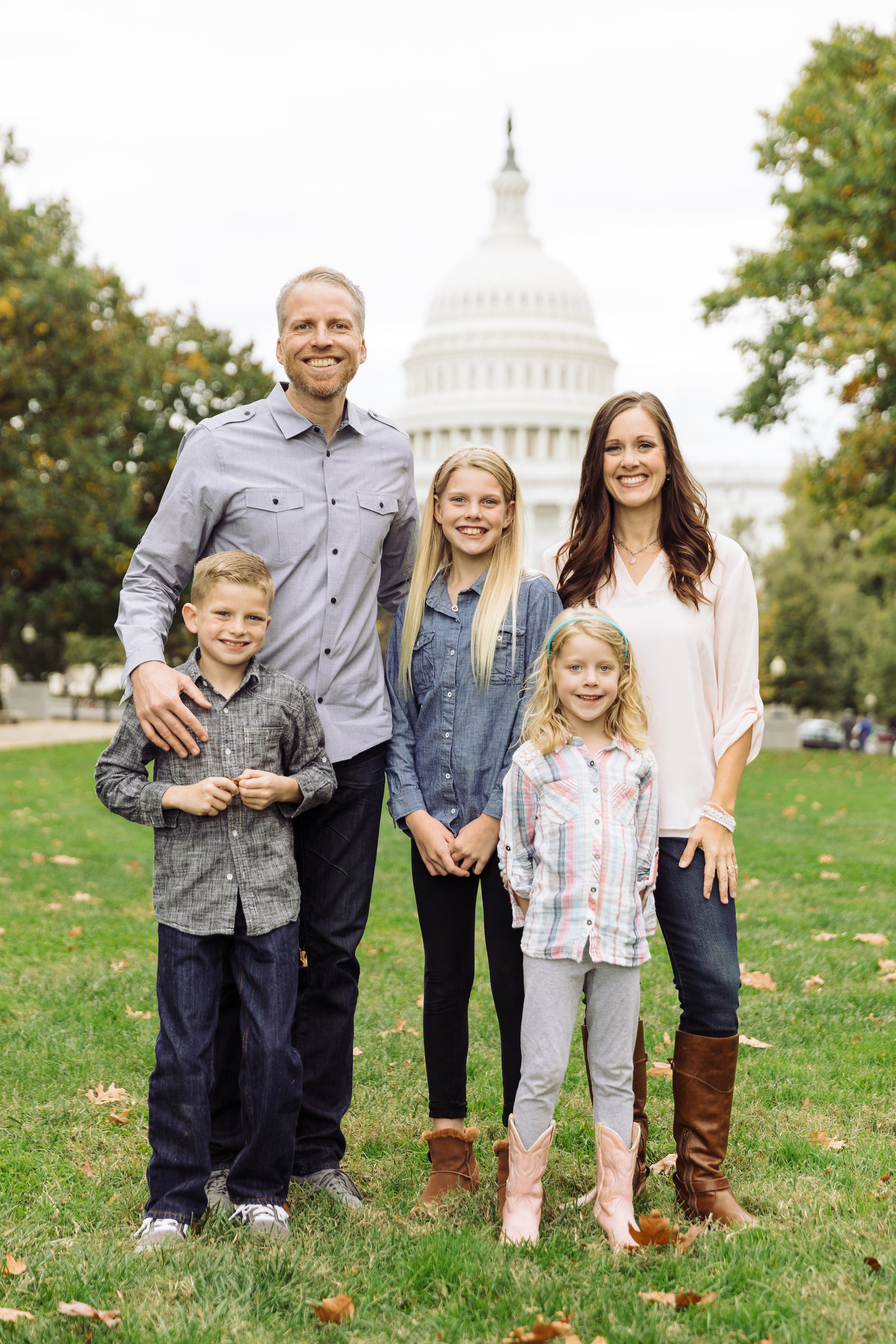 Joel: You think about a vision as you sit down in a boardroom and you talk it out and you figure out a vision. But most of the vision throughout Scripture was brought about because people got on their knees, they sought God, and God showed up and brought His revelation into their souls. We do that for ourselves, but rarely do we do that for our marriage.
Joel: You think about a vision as you sit down in a boardroom and you talk it out and you figure out a vision. But most of the vision throughout Scripture was brought about because people got on their knees, they sought God, and God showed up and brought His revelation into their souls. We do that for ourselves, but rarely do we do that for our marriage.
I would say a vision would be a shared way of seeing, and that begets a clarifying purpose, a shared way of doing. And that helps us navigate decisions, which is ultimately our purpose that comes together.
If you have a clear vision, it will halt a thousand arguments. So for us, when we talk about our vision of “We want to give more than we receive, ” it’s a great vision. It’s the same reason you have policy. You create policy so you don’t have to make the same decision a thousand times.
When you get a vision together as a couple, you have found a place of clarity in your marriage. And when you come to the decisions that would otherwise turn into an argument, you instead lean into the vision that you both have prayed into and solidified in your hearts. And so then you’re on the same page.
So it’s more than just hey let’s do a good thing. This is practical. This is nuts and bolts into the details of your relationship. And it helps you function not just on a large scale, but on a small scale, on a day-to-day basis as well.
Nina: And we actually really encourage all couples to make it a part of their marriage routine to have a vision retreat, something where they come back to intentionally annually or maybe even a couple of times a year and are spending some time reflecting on things like, “Hey, what are some of the unique things about our marriage that God might be intending to use? And what do we want to be about? And how do we see God kind of using us or pulling us in the same direction? And how can we maximize that?”
So there are questions and prompts to help couples maybe be more intentional about that and we hope that will save a lot of conflict from folks who end up feeling like are pulling against each other, as opposed to really dreaming about what God might intend to use them for in ways that He couldn’t have otherwise.
Joel: So it’s a long process. It’s prayerful. It’s listening posture to one another. But when you push through and you really seek to understand one another, God will take you to a place of purpose. That fixes a lot of arguments, if you just live with purpose in your marriage.
“When you push through and you really seek to understand one another, God will take you to a place of purpose.” – Joel Schmidgall
Connecting to God and Each Other
Joel: I think praying circles around our own marriage has been huge, but each season, I think it’s practiced a little differently.
So early on, it was the Sunday night prayer walks that we would do. And we would just circle our neighborhood, we would circle our house, and some of that was conversation with each other and some of it was conversation with God. We’ve got three kids now and life is different, and so we have our different rhythms and different seasons.
But a couple things: we have a dog now. We’ve got to walk the dog. So every night about midnight, I take that dog for a walk, and it’s a prayer circle. I’m praying over our marriage, I’m praying over our house, I’m praying over our family. But you find these little ways. You don’t have to fight against your schedule. Just utilize your schedule.
Another moment for me is, every day when I get home from work, from the car door to the house—and we live in the city, so that could be many blocks, actually, so it can be a long walk—but from a car door to the house, I’m asking God. I’m submitting God to give my full effort to my marriage. And you know how it works: you give everything you have to work, and then you come home, and you give whatever leftovers you have to your marriage.
But that little prayer walk right there, that little prayer circle is me saying, “No. I’m coming into this house, and I’m going to give everything I have. I want to be intentional about loving my wife the best that I can.”
So these little prayer prompts throughout the day—it’s not like we have an hour that we just do this all at once. But we have prompts throughout our day, throughout our week that keep us consistent in getting into the mind of God.
Getting into the Heart and Mind of God
Nina: Intentional and committed prayer and devotion and scripture study is really important. And where we’ve seen it probably the most transformational in our marriage, it’s kind of like exercise, right? Every day and regular exercise is important. But also there’s times where you maybe want you push extra or you put a little things back in order you have a reset.
Joel: I was really impacted by the idea of getting the mind and the heart of God, because so often in our culture, prayer is a transactional item. It’s a transactional action. So I want to talk to God because I need something from God, and so will He give it to me or will He not give it to me? If He did then maybe I’d believe in Him.
“So often in our culture, prayer is a transactional item.” – Joel Schmidgall
But here here we come into Jesus Calling, and it has nothing to do with that. It’s a posture of listening, it’s a posture of receiving, it’s a posture of elevating our thought to have God thoughts.
“[With Jesus Calling, prayer is] a posture of listening, it’s a posture of receiving, it’s a posture of elevating our thought to have God thoughts.” – Joel Schmidgall
We see in the scripture in Acts Chapter 2 is that the result of being in the presence of God is to dream and to gain vision. And what I was so impacted by Jesus Calling is that’s what it is. This is more than just the two-way transactional relationship. This is us getting the heart and the mind of God.
Nina: I’d like to share thoughts from Jesus Calling August 3rd:
Though the world applauds quick-witted retorts, My instructions about communication are quite different: Be quick to listen, slow to speak, and slow to become angry. Ask My Spirit to help you whenever you speak. I have trained you to pray—“Help me, Holy Spirit”—before answering the phone, and you have seen the benefits of this discipline. Simply apply the same discipline to communicating with people around you. If they are silent, pray before speaking to them. If they are talking, pray before responding. These are split-second prayers, but they put you in touch with My Presence. In this way. Your speaking comes under the control of My Spirit. As positive speech patterns replace your negative ones, the increase in your Joy will amaze you.
Joel: I love this passage and am personally challenged by it. I think in a marriage relationship, specifically, our first reaction is not to listen. Our first reaction is to seek to be understood. And the majority of arguments in a relationship are around that idea: “I feel misunderstood.” And so where we are exhorted here is, No, instead I’m going to take the opposite posture. I’m going to minister out of the opposite spirit and I’m going to listen and seek to understand.
And for me, how do if you’re actually doing it? Here’s a simple test for me: am I waiting to say what I have to say? Or my waiting to ask a question so that I can deeper understand what the other person is trying to communicate to me?
Because here’s what-what happens when you get in an intense discussion or maybe argument: your adrenaline kicks in. And what happens is you skip over that executive function of your brain, and you go straight to fight-or-flight. And we know that we can’t speak out of logic when we get into a fight-or-flight, and so we’ve got to calm ourselves in a way to do that is to simply seek to understand and ask questions of the other person. And as you do that there is a calmness there’s a peace that comes over them.
“We can’t speak out of logic when we get into a fight-or-flight, and so we’ve got to calm ourselves in a way to do that is to simply seek to understand and ask questions of the other person.” – Joel Schmidgall
As you can repeat back to them and truly understand what they are saying, you know what you’re also doing? You’re also asking the Holy Spirit to come and give you a true insight into them. I don’t know where I would be in marriage if I didn’t have the opportunity to pray and to seek the holy spirit help and strength because that has guided me out of a lot of pride in my life. So I just I love this passage.
Marriage is not something that will just make you happy in life. Right? It doesn’t just make life easy, or once you have that, I think there’s this preconceived notion that everything just is fine after that. But it’s quite the opposite. You’re committing to an imperfect person, an imperfect situation. You’re committing to hardships, sometimes, but also you receive joy that comes from the Spirit of God.
This is a relationship, a covenantal relationship that if you fully give yourself to it and fully give yourself to God through prayer, He can make you, he can mold you in a way that is so unique and just bring you back into line, into the treasure that God has made you to be. And so we spend a lot of our lives just trying to come back into the image of God, and I think marriage is a beautiful way that that happens.
Narrator: You can find Joel and Nina’s new book, Praying Circles Around Your Marriage, wherever books are sold.
Narrator: Stay tuned for our chat with writer and podcaster Darlene Brock after a brief message about a free offer from Jesus Calling!
Download this FREE daily prayer calendar which works with your Jesus Always devotion. Each day begins with a guided reflection followed by space for prayers of thanksgiving and special requests.
Narrator: Our next guest is writer and podcaster Darlene Brock. After spending 20 years in the Christian music business, Darlene felt God leading her in a new direction: beginning a ministry to help women join together and support each other to become the best versions of themselves. Today, she explains why this support and community is so needed by women as we face unique challenges in our current society.
Darlene Brock: I’m Darlene Brock, and I have worn lots of hats. I’m a mother of two daughters. I am a wife. I’ve been a business owner. I was a video producer. I’ve had lots and lots of roles. But currently I am over The Grit and Grace Project, which is an online magazine for women. And we also do a podcast, and just have a whole focus around helping women—including my new book Raising Great Girls.
Following a Winding Path into the Music Business
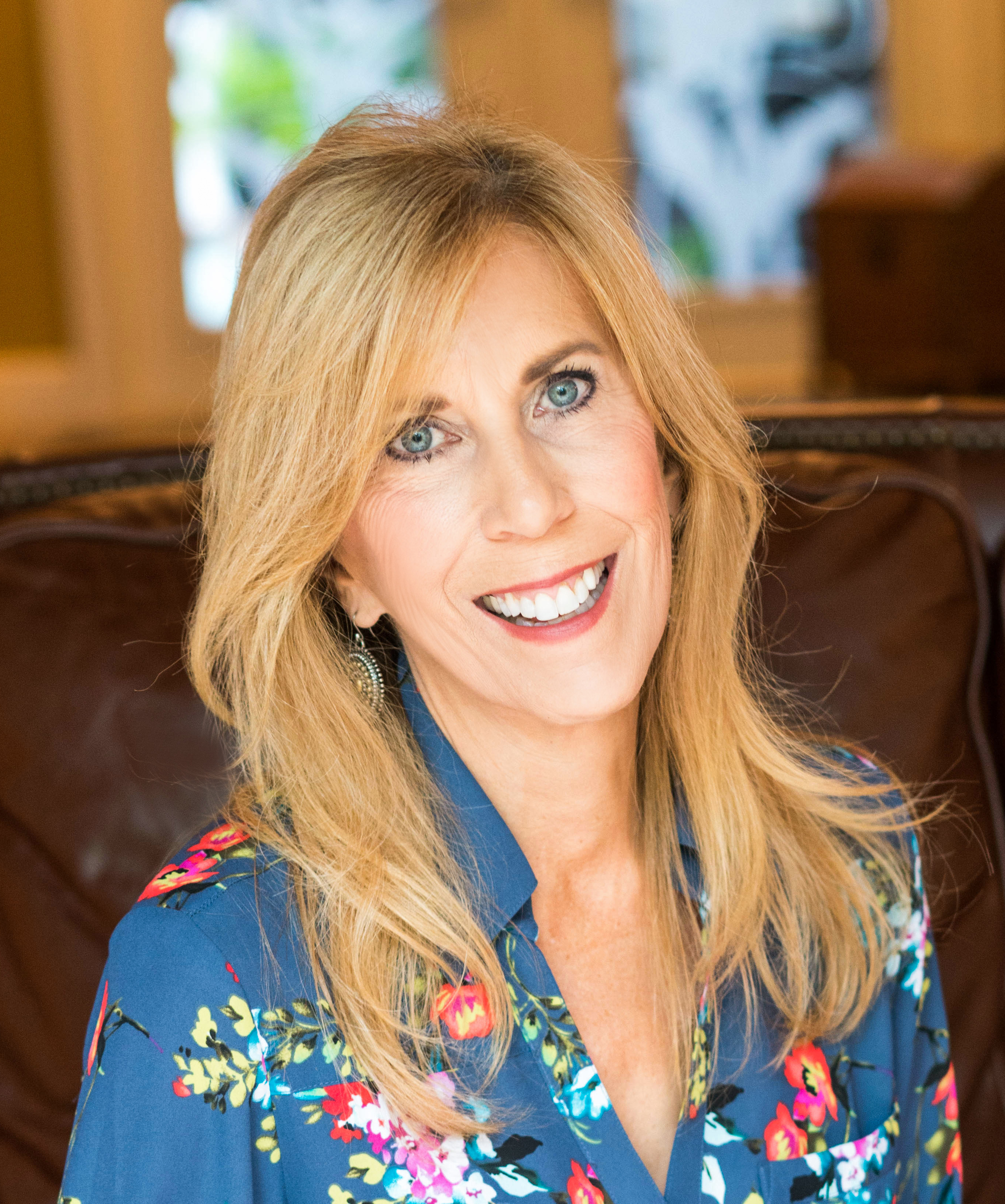 I grew up in a small town in Indiana and attended a GARBC church. Now I don’t know how many people know what that is: General Association of Regular Baptist. And I mean, it was a good church. The people there were delightful, but they kind of had a lot of rules. I was not exactly a rule follower in any sense of the word.
I grew up in a small town in Indiana and attended a GARBC church. Now I don’t know how many people know what that is: General Association of Regular Baptist. And I mean, it was a good church. The people there were delightful, but they kind of had a lot of rules. I was not exactly a rule follower in any sense of the word.
So between the small town and the rule-following church, I just kind of looked for escapes. And some of them were great, much to my parents’ dismay, although they were lovely to me. I gave them a lot of grief, or I escaped to the local library because I was fascinated by the world at large, especially women’s lives who had done something magnificent. So I read every bio of every woman that my library held.
I was looking for adventure. I was looking to make some kind of conquest and impact in this world. And I have no idea why a 12-year-old girl would be thinking about that. But I did. I kept thinking, There’s so much more out there and there’s so many women who have already done magnificent things. I want to know about them.
I left home two weeks out of high school and still continued my track of not living a stellar life, at least in my faith. And [after] a couple of years of doing that, the Lord reminded me of what mattered, and it was Him, not all of the stuff I got in. But being the extreme person that I am, why would I not go from living a questionable life to going, I’ve got it. Let’s join a Christian Commune! Because if I’m going to surrender to Christ, I’m giving everything up.
So I did. I joined it. It became my Bible school. It became my opportunity to grow and the Lord. We took in a lot of runaways and homeless people, and I was taught compassion during those experiences. I really saw a lot of the world that I hadn’t seen before.
But at the same time, I went from one extreme to the other. I went from running away from God to thinking that I had God completely figured out, and I was really, really sparked my faith in God. And as you do as a young person, you get a little bit full of yourself, a little bit self-righteous. And it didn’t take long for me to go, “That can’t quite be right either.” So I ended up leaving there and going and running a Christian campground, which was kind of a great middle ground.
We were year-round, so we had events on the property too.
And one of them we had was at the time with the young pioneers of contemporary Christian music. These were a bunch of musicians and guys and girls that worked with them that showed up on the grounds with their hair and their bell bottoms and their guitars and the drum kits and all of the things that were part of the music industry at the time. And they were heavily musicians who had met the Lord and didn’t know anything other than music. So all of a sudden, they’re in this new industry called “Contemporary Christian Music.”
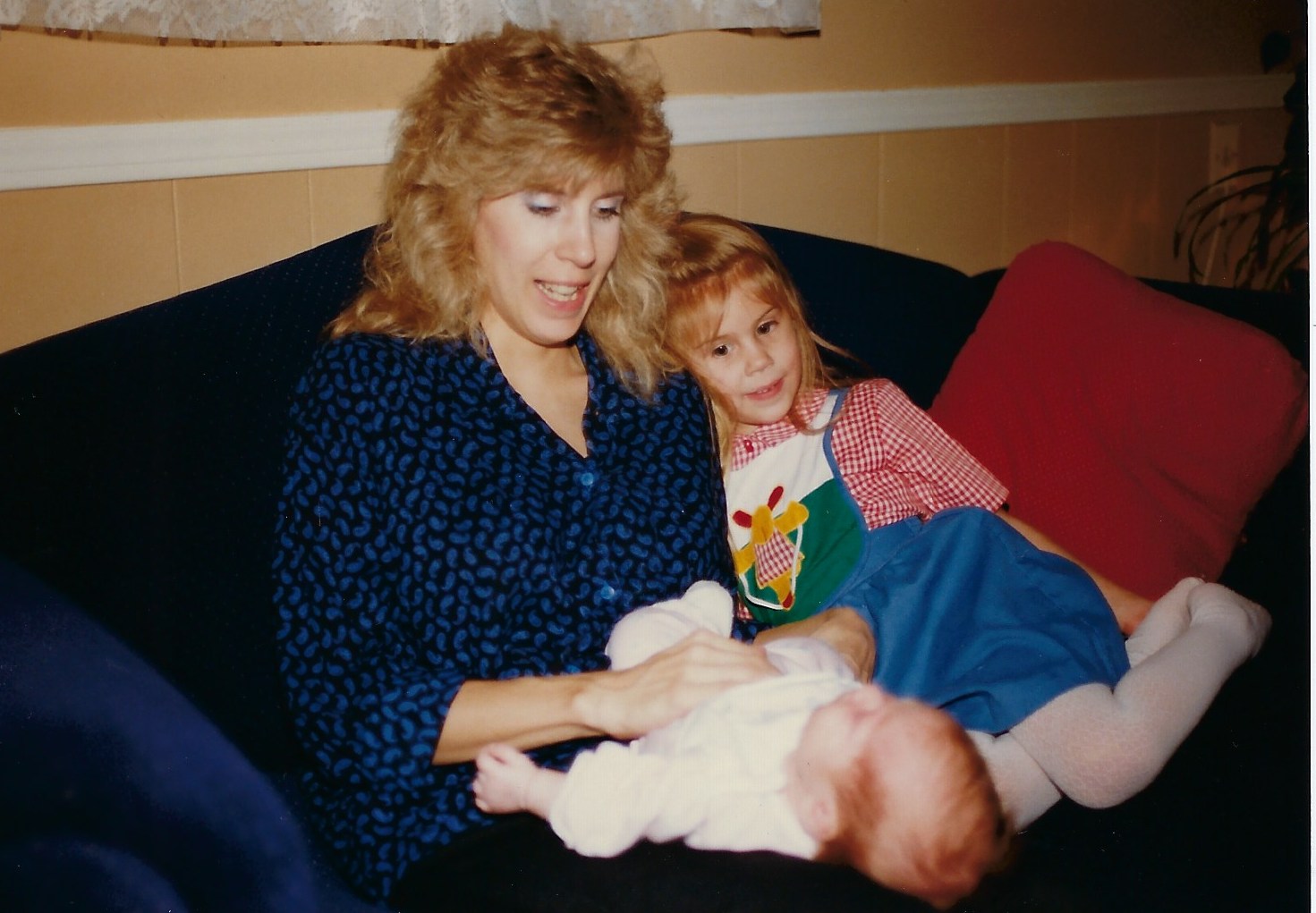 Dan Brock, who I ended up marrying, was a manager of artists and a booking agent. He at the time managed a group called Petra. He was in the business side. And in fact After they left the grounds a year or two later, we had developed mutual friends. And again I was always looking for a new adventure and he proposed to me that I would come and become a booking agent at his company called The Tame Agency, that was a pretty big significant talent agency of Christian musicians.
Dan Brock, who I ended up marrying, was a manager of artists and a booking agent. He at the time managed a group called Petra. He was in the business side. And in fact After they left the grounds a year or two later, we had developed mutual friends. And again I was always looking for a new adventure and he proposed to me that I would come and become a booking agent at his company called The Tame Agency, that was a pretty big significant talent agency of Christian musicians.
I didn’t have a clue what I was doing, but I’m like, “Sure! Sounds like something I might want to try.” So I moved to Nashville, Tennessee, to go to work for him. But the good news was that I actually became a pretty good booking agent. And then nine months later, we got married.
My most favorite part of the music business, and I was in it for a very long time doing a lot of different things, but my favorite part were the concerts where you saw a whole room of kids dancing, singing, slapping each other on the back. And at the end of the night, they would hear about a relationship with Christ. So it was difficult because it was new and people didn’t quite know what to do with us. But at the same time, it was so rewarding because we saw lives changed.
Finding a Second Career, Helping Women Along the Way
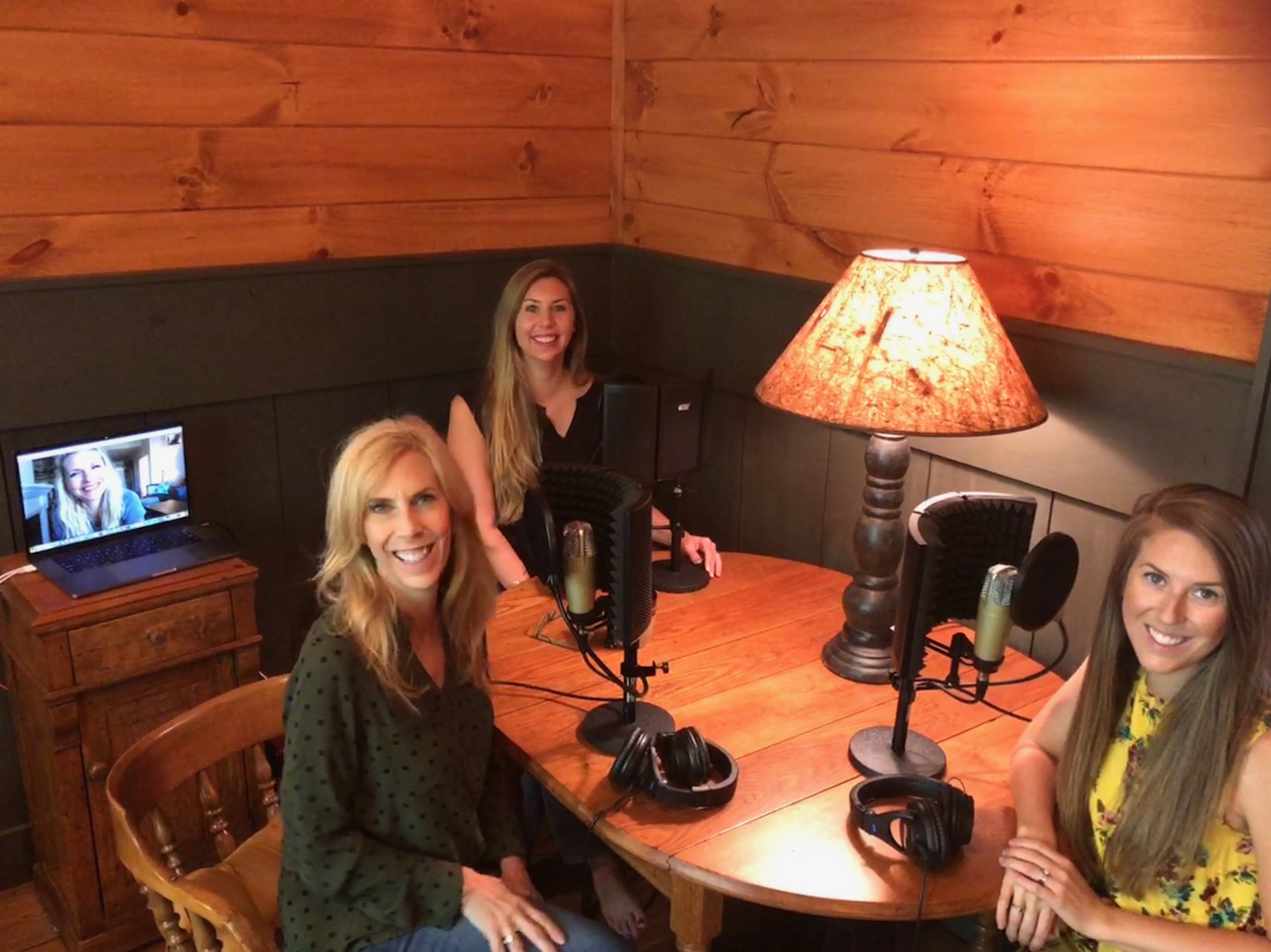 I was in the music business for a very long time. But then the door closed. We had sold our companies. We felt like it was time for us to move on. And we just physically moved out of Nashville, Tennessee, into Florida. Florida because it was warm. We needed a year off not doing anything. And we just kind of needed to regroup because we had been so busy for so long.
I was in the music business for a very long time. But then the door closed. We had sold our companies. We felt like it was time for us to move on. And we just physically moved out of Nashville, Tennessee, into Florida. Florida because it was warm. We needed a year off not doing anything. And we just kind of needed to regroup because we had been so busy for so long.
When we moved here, my first thing to my husband was, “What am I going to do? Who am I going to be? I’ve been so busy for the last 20 years that I don’t know what I’m supposed to do next.” And it was that season where God started putting a germ in my heart. And it started with my daughters, watching them grow up in this culture, in this world that they were living in. And then I’d always worked with men. I just got on the tour bus with a whole band of guys. That was normal to me. Women kind of scared me because they can be challenging—as can men, but in a different way.
“Women kind of scared me because they can be challenging—as can men, but in a different way.” – Darlene Brock
My journey is different than a lot of people. And I felt sometimes during different seasons that I would have trouble explaining to someone my life journey, and some other people wouldn’t understand it and they wouldn’t know what to do with my life.
And there was this the new devotional that I believe has come out not very long ago, Jesus Always devotional, had one devotion in it that I really liked. It worked for me. And it is [June 7]:
The source of much discontentment is comparing yourself with others. I want you to make every effort to avoid this deadly trap. Remember that you are My unique creation, redeemed by My blood and exquisitely precious to me. Stay in joyful communication with Me, the Savior who loves you immeasurably more than you can imagine. I will transform you more and more into the masterpiece I designed you to be.
I think that’s important for every single one of us to realize and understand is that we are truly God’s design. And whatever circumstance or opportunity or adventure that is in our life is part of that. That will make us exactly what that said, is that we will be the masterpiece that He designed us to be.
“That’s important for every single one of us to realize and understand is that we are truly God’s design.” Darlene Brock
So I started the online magazine called The Grit and Grace Project. And it is really incorporating both of those terms. As a woman, you need to have grit so you can deal with the things that are thrown your way. And then you have to have grace for yourself and for those around you.
“As a woman, you need to have grit so you can deal with the things that are thrown your way. And then you have to have grace for yourself and for those around you.” – Darlene Brock
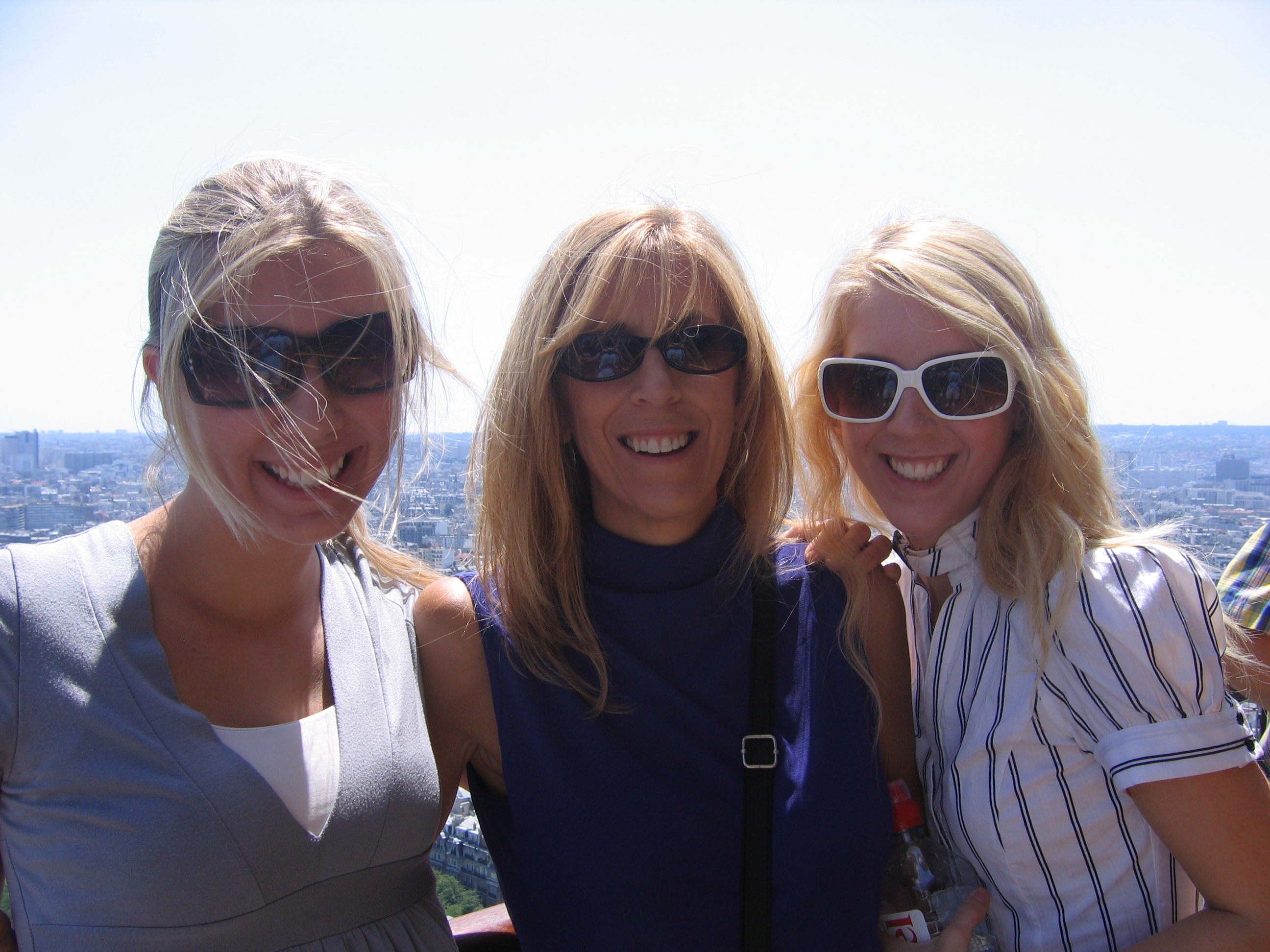 My heart grew toward what women were dealing with and how they were having to conquer this life that could be really, really challenging. And the things that sometimes they were taught they should act this way, or they were taught they should act another way. There’s so many views on how a woman should be and think and act from every corner of the world. And I really just started getting a heart for them, a heart that said, “These women need to think they’re okay. They need to think no matter what challenges they face, they’re going to be able to conquer it, that the strength that they need to do it is somewhere within them.”
My heart grew toward what women were dealing with and how they were having to conquer this life that could be really, really challenging. And the things that sometimes they were taught they should act this way, or they were taught they should act another way. There’s so many views on how a woman should be and think and act from every corner of the world. And I really just started getting a heart for them, a heart that said, “These women need to think they’re okay. They need to think no matter what challenges they face, they’re going to be able to conquer it, that the strength that they need to do it is somewhere within them.”
And we started that with several writers. They wrote from their life experience, and then we thought, We just want this to be a woman’s magazine about every part of her life, whether it’s health tips or beauty tips or a purpose article or their faith or motherhood. It didn’t matter. We wanted women to write to “Here’s what we’re dealing with. Here’s how we’re dealing with it. And sometimes we do it great and sometimes we don’t.”
I think that women need to see other normal women who have gone through difficult things in life and conquered them in the way that they were able to conquer them.
Letting Go of “the Perfect Mom”
I realized in hearing from women and watching what they spoke about that one of the main challenges is in motherhood. And not that all women are mothers. We deal with every different place you’re at. We speak into a single women’s life. We speak into divorce. We speak into it all. But there’s one thing that kept coming back was that mothers today have so much pressure to do absolutely everything right. They have to feed them right. They have to put the right diapers on them. They have to potty train them in the right way. Then they have to send them to the right school. And then they have to make sure that their teenagers are walking the perfect road and everybody’s doing everything right. And if they don’t, they’re going to find somebody online who’s going to tell them how it should have been done.
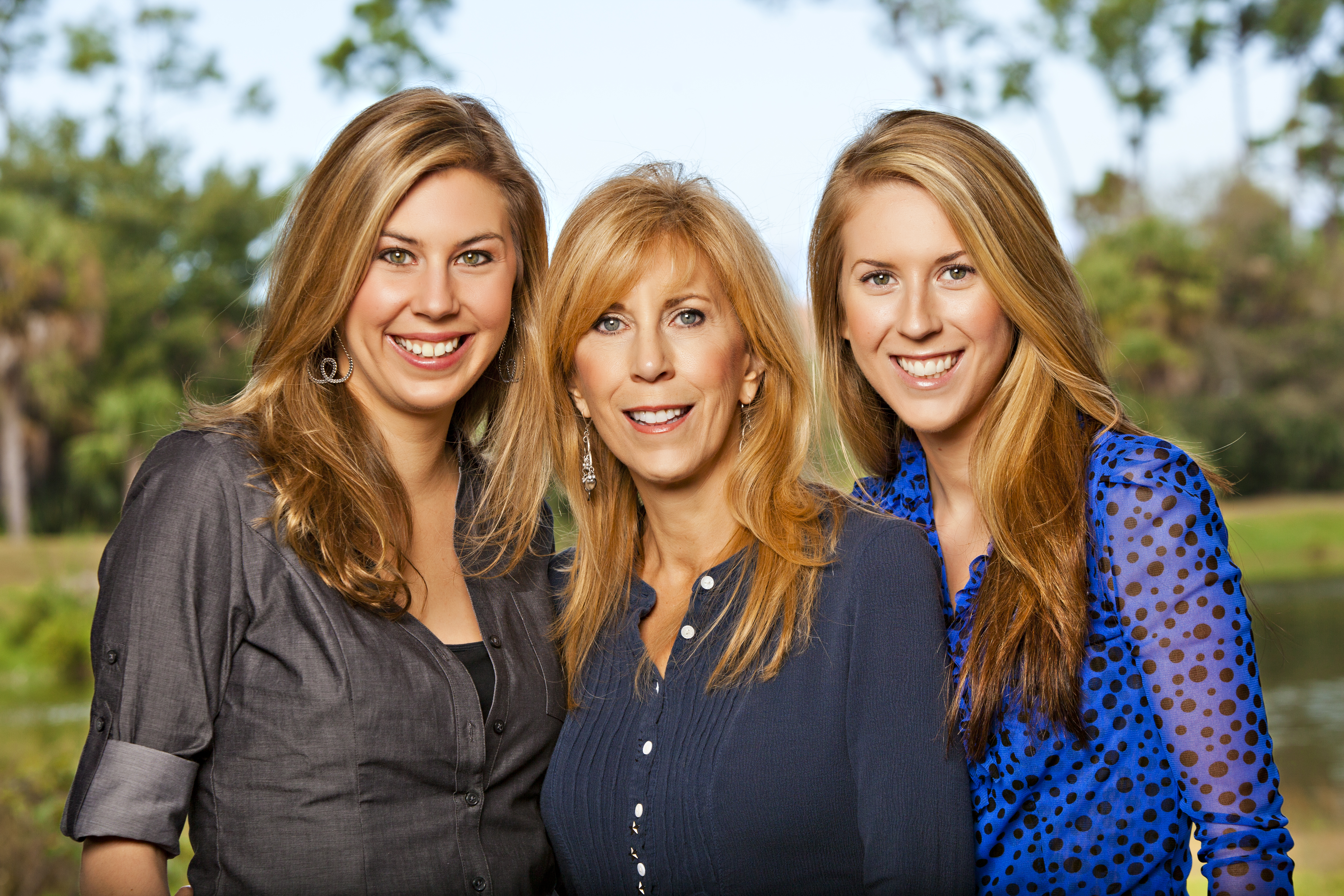 So I took my experience and my hindsight that said even some of my failures worked out just fine and broke it down in a way that made sense to me. And that is because I was a working mother outside of the home the entire time the girls grew up, I put it into different jobs, different things that moms would have to do at different times in their daughter’s life and tried to make it relatable and at the same time say, “You don’t have to be perfect to do this, and you don’t have to get it all right. And your goal is not a child that is perfect, either. You’re not going to have a perfect child. You’re not going to be a perfect mom. Neither one of them exist.”
So I took my experience and my hindsight that said even some of my failures worked out just fine and broke it down in a way that made sense to me. And that is because I was a working mother outside of the home the entire time the girls grew up, I put it into different jobs, different things that moms would have to do at different times in their daughter’s life and tried to make it relatable and at the same time say, “You don’t have to be perfect to do this, and you don’t have to get it all right. And your goal is not a child that is perfect, either. You’re not going to have a perfect child. You’re not going to be a perfect mom. Neither one of them exist.”
So what I’m saying in this book is if you raise girls that are confident and capable, then no matter what they face, they’ll figure it out. They’ll find the path that they need to take. And that’s really your goal. Not that they get everything right or you do, but that at the end of the day, they have the basic tools they need to conquer life.
“What I’m saying in this book is if you raise girls that are confident and capable, then no matter what they face, they’ll figure it out.” Darlene Brock
Narrator: To learn more Darlene Brock, The Grit and Grace Project, and her new book Raising Great Girls, please visit darlenebrock.com
Narrator: Next time on the Jesus Calling Podcast, we speak with Heisman trophy winner and former NFL player Tim Tebow. Tim has recently turned his talents toward the film industry, where he and his brother Robbie produced the new inspirational film Run the Race. We caught up with Tim and the creators and cast members of Run the Race during its premiere. Tim reflects on a central theme of the movie about two brothers who deal with extreme struggles in their lives and how their bond with each other, and God, grow stronger.
Tim Tebow: I believe that we’re all meant for relationships and community with God first and then each other.
Life’s not always going to be easy, and it’s not always going to be perfect. But we believe in you. But more importantly, the God of this universe, He loves you, He gave His best for you, and you matter. You have significant meaning and purpose and this earth.
